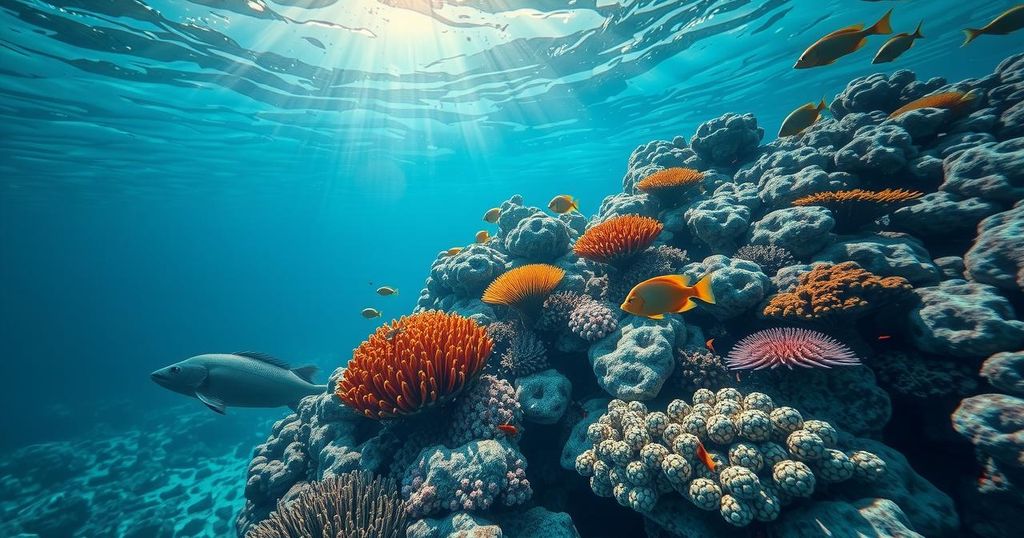Research indicates that climate change has made marine heatwaves off Western Australia up to 100 times more likely, contributing to the death of 30,000 fish. The study highlights the ocean’s rising temperatures, attributing nearly 90% of these heatwaves to human-induced global heating. The implications for marine biodiversity and local industries are significant, urging immediate attention to climate issues.
A recent study conducted by Climate Central indicates that climate change significantly increased the likelihood of marine heatwaves, which contributed to the deaths of 30,000 fish off the coast of Western Australia. These heatwaves, which have been occurring since September of the previous year, resulted in ocean temperatures rising 1.5°C above average, with some areas experiencing increases of 4-5°C at the surface.
The analysis revealed that human-induced climate change has made these oceanic heat events 20 times more probable, with the peak period in November seeing a staggering increase of up to 100 times. Such heatwave events occur when sea temperatures exceed 90% of historical highs for a minimum of five consecutive days, contributing to thermal stress in marine life.
Dr. Andrew Pershing, chief program officer at Climate Central, emphasized that this phenomenon is closely linked to fossil fuel consumption, stressing its abnormality. Temperature data were gathered from reputable organizations, including the US National Oceanic and Atmospheric Administration, and assessed using 13 climate models to isolate the impact of carbon emissions from human activities.
Research indicates that nearly 90% of marine heatwaves are now directly attributable to anthropogenic global warming. The implications of these heatwaves are severe, leading to fish mortality and coral bleaching, and posing threats to industries reliant on healthy marine ecosystems.
The phenomenon of marine heatwaves has escalated alongside rising global temperatures attributed to climate change. Marine heatwaves are defined as prolonged periods where ocean temperatures exceed historical averages. The impact of these events extends beyond environmental degradation, affecting numerous industries such as fishing and tourism. Australia, particularly vulnerable to these climatic shifts, has recorded significant occurrences of marine heatwaves, with lasting effects on marine biodiversity and ecosystems. Research has shown that ocean heat absorption plays a critical role in climate change, with approximately 90% of the additional energy from greenhouse gases being stored in the oceans. This increased energy is linked to more frequent severe weather events, including tropical cyclones. Given Australia’s geographical position, the region has been particularly affected, with past marine heatwaves causing extensive damage to critical habitats, such as seagrass meadows. With the ongoing increase in ocean temperatures, there is concern for the health of marine resources and the sustainability of local economies dependent on these ecosystems.
In summary, the findings from Climate Central highlight that climate change has drastically increased the likelihood and intensity of marine heatwaves off the coast of Western Australia, leading to significant fish mortality and stressing marine ecosystems. As the situation evolves, it remains imperative to address the underlying causes of climate change, particularly fossil fuel emissions, to mitigate further environmental impact. The ongoing threat posed to marine life and industries underscores the urgency of global climate action.
Original Source: www.theguardian.com






